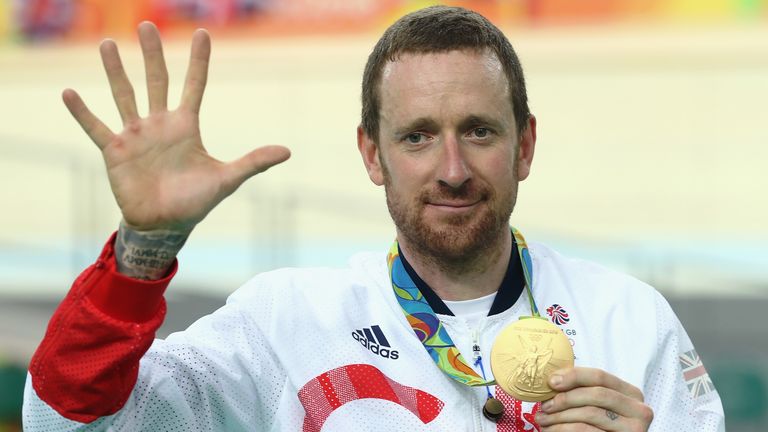Sky Views: Reality bites for Olympic heroes

Monday 23 January 2017 05:43, UK
Paul Kelso, Sports Correspondent
When the International Olympic Committee wanted to revive its ailing winter games and attract a younger audience they knew jeopardy was crucial.
That explains why they raided the X-Games and installed snowboarding and freestyle skiing, with their telegenic half-pipes, moguls and aerials, alongside the traditional Alpine and Nordic events.
It worked. Though they would never admit it, a major part of the appeal of snowboard and ski-cross is the prospect of regular crashes. The prospect of spectacular face plants can make for a compelling watch.
Which also explains why Channel 4 will next month launch another series of The Jump, the reality winter sports show that has become a magnet for athletes, and a job creation scheme for the doctors, physios & stretcher-bearers required to treat their injuries.
What it does not explain is why right now, somewhere in Austria, four British Olympic and Paralympic athletes, three of them Rio gold medalists, are currently preparing to hurl themselves off an Alp for our entertainment.
Sir Bradley Wiggins is the most striking recruit. Persuading Britain's most decorated Olympian into thermal Lycra is something of a coup for the show, particularly given his previous disdain for those who have embraced celebrity culture.
Joining Wiggins are Jade Jones, a double gold medallist after retaining her taekwondo title in Rio; Kadeena Cox, a Paralympic gold medallist in both cycling and athletics; and gymnast Louis Smith, who came home with silver and bronze medals.
They are not the first Olympians to accept the invitation. Last year Rebecca Adlington, Linford Christie and former gymnast Beth Tweddle all took part, Tweddle disastrously so as she injured two vertebrae and required surgery.
Now a broadcast journalist is in no place to criticise anyone for accepting a TV appearance, particularly Olympians approaching the finish line of a short sporting career that in most cases demands total dedication while offering no financial security.
Many though would hope their heroes shared the view Wiggins expressed in an interview with the Guardian in 2015.
"You don't want to become just this pointless celebrity who's here, there and everywhere, going on Can't Cook, Won't Cook," he said. "I don't want to become a captain on Question Of Sport and go on every week playing the fool."
The motivation for Wiggins' change of heart are his business, but it says something about the value of an Olympic medal that so many are willing to take the risk. (That Cox's cheque from The Jump more than covers the UK Athletics funding she will lose for competing tells its own story.)
An Olympic medal will always be the greatest prize in sport and the motivation is glory, not financial gain. But commercially, they are not worth what they used to be.
Team GB's phenomenal success over the last three Games, peaking with the record haul in Rio, has devalued the currency.
After London 2012 more than one agent was left shaking their head at the endless parade of British champions. Every gold medal for someone else meant fewer opportunities for their client, and Rio has compounded the problem.
There are too many medallists for the market.
It is all very different from 1996, when Steve Redgrave and Matthew Pinsent returned from Atlanta with the only golds of a disastrous Games.
It brought them status that endures to this day, though they were on their own when it came to opening the nation's supermarkets.
Go back further and cashing in was not a choice. After Sir Roger Bannister recorded the first four-minute mile he competed for one more season before getting a proper job, as a ground-breaking neurologist.
For a few stellar Olympians - Wiggins, Mo Farah, Jessica Ennis-Hill among them - medals remain precious metal, attracting valuable endorsements to top up substantial career earnings.
But for the rest, they can hardly be blamed for risking injury for another 15 minutes of fame and the income that goes with it.
The irony of Britain's Olympic riches is that they have never meant less to athletes trying to make a living from their second career.
Sky Views is a series of comment pieces by Paste BN editors and correspondents, published every morning.
Previously on Sky Views: Sophy Ridge: Being a woman in British politics




